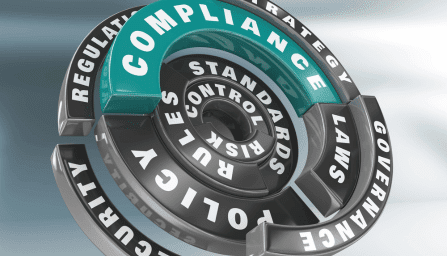Introduction
Definition of IT Security Policies
The definition of IT security policies refers to a set of guidelines and procedures that are put in place to protect an organization’s information technology infrastructure and assets from potential threats and vulnerabilities. These policies outline the rules and regulations that employees and other stakeholders must adhere to in order to maintain a secure and resilient IT environment. By defining IT security policies, organizations can establish a framework for identifying, preventing, and responding to security incidents, ensuring the confidentiality, integrity, and availability of their data and systems.
Additionally, IT security policies also help to ensure compliance with industry regulations and standards, as well as mitigate risks associated with unauthorized access, data breaches, and cyber-attacks. Overall, the definition of IT security policies plays a crucial role in safeguarding an organization’s digital assets and maintaining a proactive approach towards information security.
TL;DR
IT security policies are crucial for protecting organizations, but developing effective policies presents challenges. This article explores the important role security consultants play in assessing vulnerabilities, identifying risks, and establishing robust policies tailored to organizations’ unique needs.
- IT security policies protect organizations from threats by establishing guidelines and procedures.
- They are important for preventing breaches, promoting awareness, and ensuring compliance.
- Security consultants help develop policies by assessing risks, identifying vulnerabilities, and recommending controls.
- The purpose is to create a secure environment and meet legal/regulatory requirements.
- Components include access control, data classification, incident response, and audits.
- Benefits include protecting confidential data, mitigating risks, and achieving compliance.
- Challenges include complex IT systems, evolving threats, and balancing security and usability.
- Consultants assess needs, develop frameworks, assist implementation, and provide training.
- Best practices include stakeholder involvement, regular reviews, and integration with business processes.
In summary, security consultants play a critical role in developing comprehensive and effective IT security policies tailored to organizations’ specific needs and aligned with industry best practices. Their expertise helps address vulnerabilities and evolving threats
Importance of IT Security Policies
IT security policies play a crucial role in safeguarding an organization’s sensitive information and assets. These policies outline guidelines, procedures, and best practices that employees must follow to ensure the confidentiality, integrity, and availability of data and systems. The importance of IT security policies cannot be overstated, as they help prevent unauthorized access, data breaches, and other security incidents. Additionally, these policies promote a culture of security awareness and accountability among employees, making them essential for every organization. By implementing and enforcing robust IT security policies, organizations can mitigate risks, protect their reputation, and maintain the trust of their customers and stakeholders.
Role of Security Consultants in Developing IT Security Policies
The role of security consultants in developing IT security policies is crucial for organizations to ensure the protection of their sensitive data and systems. Security consultants bring their expertise and knowledge in identifying potential security risks and vulnerabilities, conducting risk assessments, and implementing effective security measures. They work closely with organizations to understand their unique security needs and develop tailored policies that align with industry best practices and regulatory requirements.
By leveraging their experience and insights, security consultants play a vital role in helping organizations establish a robust and comprehensive IT security framework that mitigates risks, safeguards assets, and maintains the confidentiality, integrity, and availability of critical information. For more information on the importance of a vCISO role, especially in small businesses, see: The Importance of a Virtual Chief Information Security Officer for Small Businesses.
Understanding IT Security Policies

Purpose of IT Security Policies
The purpose of IT security policies is to establish guidelines and procedures that help protect an organization’s information and technology assets. These policies define the rules and expectations for employees, contractors, and other stakeholders when it comes to handling sensitive data, accessing systems, and using technology resources. By having well-defined IT security policies in place, organizations can minimize the risk of data breaches, unauthorized access, and other security incidents.
These policies also ensure compliance with industry regulations and standards, as well as demonstrate a commitment to maintaining the confidentiality, integrity, and availability of information. Ultimately, the purpose of IT security policies is to create a secure and resilient environment that enables the organization to achieve its business objectives while safeguarding its sensitive information.
Components of IT Security Policies
Components of IT security policies are crucial in ensuring the effective implementation and maintenance of a robust security framework. These policies serve as the foundation for defining the rules, guidelines, and procedures that govern the protection of an organization’s information assets. The key components of IT security policies typically include access control, data classification, incident response, encryption, user awareness training, and regular security audits.
By addressing these components, organizations can establish a comprehensive and proactive approach to mitigating potential security risks and safeguarding their sensitive data and systems. For a detailed guide on performing risk assessments, you may want to read: Effective Risk Assessments in Cybersecurity.
Legal and Regulatory Requirements for IT Security Policies

Legal and regulatory requirements play a crucial role in the development of IT security policies. These requirements are designed to ensure that organizations comply with relevant laws and regulations pertaining to the protection of sensitive information and the prevention of cyber threats. By adhering to these requirements, organizations can establish a strong foundation for their IT security policies, enabling them to effectively safeguard their digital assets and mitigate potential risks. Compliance with legal and regulatory requirements also helps organizations demonstrate their commitment to data privacy and security, enhancing trust among stakeholders and customers.
Therefore, it is essential for security consultants to have a comprehensive understanding of these requirements in order to develop robust IT security policies that align with industry best practices and meet the specific needs of the organization.
Benefits of IT Security Policies
Protection of Confidential Information
The protection of confidential information is a critical aspect of developing IT security policies. In today’s digital world, organizations face numerous threats to the security of their sensitive data. Security consultants play a crucial role in ensuring that proper measures are in place to safeguard confidential information. They assess the organization’s current security practices, identify vulnerabilities, and recommend effective strategies to mitigate risks. By implementing robust security measures, such as encryption, access controls, and employee training, security consultants help prevent unauthorized access, data breaches, and other security incidents. Their expertise and guidance are invaluable in maintaining the confidentiality of sensitive information and preserving the reputation and trust of the organization.
Mitigation of Security Risks
Mitigation of security risks is a crucial aspect of developing IT security policies. Security consultants play a vital role in identifying potential risks and implementing effective measures to minimize their impact. By conducting thorough risk assessments, consultants can identify vulnerabilities in the system and develop tailored strategies to address them. This includes implementing robust access controls, regularly updating software and hardware, and educating employees on best practices for maintaining a secure environment. Additionally, consultants can assist in establishing incident response plans to ensure a swift and effective response in the event of a security breach. Through their expertise and experience, security consultants contribute significantly to the development of comprehensive IT security policies that safeguard organizations from potential threats and vulnerabilities.
Compliance with Industry Standards
Compliance with industry standards is a crucial aspect of developing IT security policies. In today’s rapidly evolving technological landscape, businesses face a multitude of security threats and vulnerabilities. By adhering to industry standards, organizations can ensure that their IT security policies are aligned with best practices and regulations. This not only helps protect sensitive data and systems but also enhances the overall security posture of the organization.
Security consultants play a vital role in guiding businesses through the complex process of achieving compliance with industry standards. They possess the knowledge and expertise to assess the organization’s current security measures, identify gaps, and recommend appropriate measures to meet the required standards. With their guidance, businesses can establish robust IT security policies that not only meet regulatory requirements but also instill trust and confidence among stakeholders.
Challenges in Developing IT Security Policies
Complexity of IT Systems
The complexity of IT systems plays a crucial role in the need for security consultants in developing IT security policies. As technology continues to advance, IT systems have become increasingly intricate and interconnected. This complexity introduces numerous vulnerabilities and potential points of attack that can be exploited by malicious actors. Security consultants possess the expertise and knowledge to navigate through the intricacies of these systems, identify potential risks, and develop effective security policies to mitigate them.
Their understanding of the complex nature of IT systems allows them to create comprehensive strategies that address the unique challenges posed by modern technology. By working closely with organizations, security consultants ensure that IT security policies are tailored to the specific needs and requirements of each system, providing a robust defense against cyber threats.
Evolving Threat Landscape
The evolving threat landscape has made it imperative for organizations to seek the expertise of security consultants in developing IT security policies. With the rapid advancements in technology and the increasing sophistication of cyber threats, organizations face a multitude of challenges in ensuring the confidentiality, integrity, and availability of their digital assets. Security consultants play a crucial role in assessing the current threat landscape, identifying vulnerabilities, and recommending effective strategies to mitigate risks. By staying up-to-date with the latest trends and emerging threats, security consultants help organizations stay one step ahead in the ongoing battle against cybercrime.
Balancing Security and Usability
Balancing security and usability is crucial in developing IT security policies. While it is important to have robust security measures in place to protect sensitive information and prevent unauthorized access, it is equally important to ensure that these measures do not hinder productivity or create unnecessary barriers for users. Striking the right balance between security and usability requires careful consideration of user needs, risk assessments, and industry best practices. By finding the right balance, organizations can effectively protect their systems and data without compromising user experience or impeding business operations.
Role of Security Consultants

Assessment of Security Needs
The assessment of security needs is a critical step in developing effective IT security policies. Security consultants play a vital role in this process by conducting thorough evaluations of an organization’s current security measures and identifying potential vulnerabilities. They assess the specific needs and requirements of the organization, taking into account factors such as the industry, size, and nature of the business. By conducting comprehensive assessments, security consultants can provide valuable insights and recommendations for implementing robust security measures that align with the organization’s goals and objectives. This ensures that the IT security policies are tailored to address the unique security challenges faced by the organization, ultimately enhancing its overall security posture.
Development of Policy Framework
The development of a policy framework is a crucial step in establishing effective IT security policies. Security consultants play a vital role in this process by leveraging their expertise and knowledge to create a comprehensive framework that aligns with the organization’s objectives and requirements. They assess the organization’s current security practices, identify vulnerabilities, and develop policies and procedures to address these gaps. Additionally, security consultants collaborate with key stakeholders, such as IT teams and management, to ensure that the policy framework is practical, enforceable, and adaptable to evolving threats. By engaging security consultants in the development of the policy framework, organizations can enhance their overall security posture and mitigate potential risks.
Implementation and Training
Implementation and training are crucial aspects of developing IT security policies. Once the policies have been formulated, it is important to ensure that they are effectively implemented throughout the organization. This involves providing the necessary resources, such as hardware and software, to support the policies. Additionally, training programs should be developed and conducted to educate employees about the importance of adhering to the security policies and to provide them with the necessary skills to do so. By implementing and training employees on the IT security policies, organizations can enhance their overall security posture and mitigate the risk of potential security breaches.
Best Practices for Developing IT Security Policies
Involvement of Stakeholders
Involvement of stakeholders is crucial in the development of IT security policies. Stakeholders, including top management, IT personnel, and employees, play a significant role in shaping the policies to ensure their effectiveness and alignment with organizational goals. Their input and expertise help identify potential risks and vulnerabilities, as well as define the necessary controls and procedures to mitigate them. By involving stakeholders from various departments and levels of the organization, a comprehensive and well-rounded IT security policy can be developed that addresses the unique needs and challenges of the organization. Furthermore, stakeholder involvement fosters a sense of ownership and commitment to the policies, increasing their adoption and compliance throughout the organization.
Regular Review and Updates
Regular review and updates are essential components of an effective IT security policy. As technology and cyber threats continue to evolve, it is crucial for organizations to regularly assess and revise their security measures. This ensures that the policy remains relevant and aligned with the latest industry standards and best practices. By conducting regular reviews, security consultants can identify any vulnerabilities or weaknesses in the existing policy and recommend necessary updates or improvements. Additionally, regular updates help organizations stay ahead of emerging threats and adapt their security measures accordingly. This proactive approach to policy maintenance enhances the overall security posture of the organization and minimizes the risk of potential breaches or attacks.
Integration with Business Processes
Integration with business processes is a crucial aspect of developing IT security policies. Security consultants play a vital role in ensuring that these policies align with the organization’s overall business objectives and processes. By understanding the specific needs and requirements of the organization, consultants can develop policies that not only enhance security but also integrate seamlessly with existing business operations. This integration ensures that security measures do not hinder productivity or disrupt the flow of business activities. Additionally, consultants work closely with key stakeholders to identify potential risks and vulnerabilities within the business processes, enabling them to develop targeted security measures that address these specific areas.
Overall, the integration of IT security policies with business processes is essential for creating a comprehensive and effective security framework that supports the organization’s goals and objectives.






